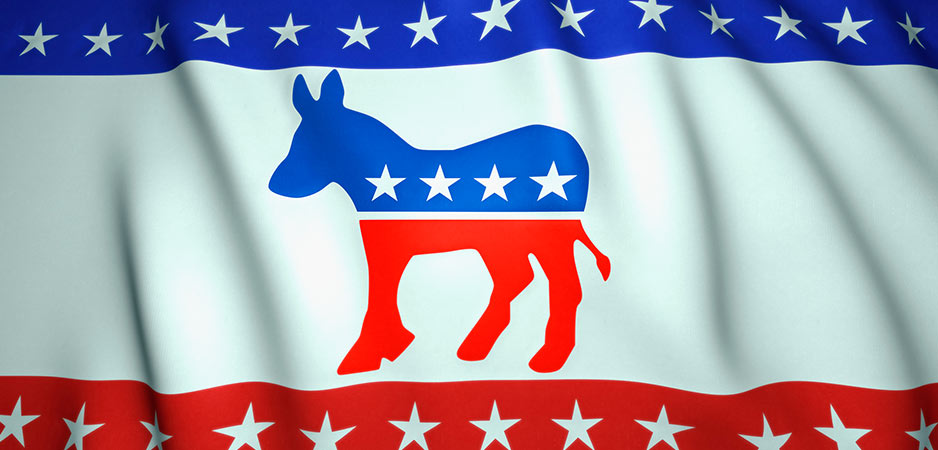In a Fair Observer column this week analyzing the outcome of the 2020 US presidential election, Steve Westly echoes the tendentious conclusions of the establishment wing of the Democratic Party. Not only do they seek to place the blame for the ambiguous outcome of the election on the rhetoric of the left, they clearly want that wing of the party simply to shut up.
Westly finds himself in the company not just of subtle political thinkers like Representative and former CIA officer Abigail Spanberger, but also of apostate Republicans such as John Kasich and Meg Whitman. These are people who have discovered — thanks to the four-year run of Donald Trump’s White House reality-TV show — that the Democratic Party feels a lot like the Republican Party of old.
Alex Acosta and the Guidelines of the Elite
Westly makes the following bold claim: “Democrats need to understand that America is still a center-right country with a large, highly motivated evangelical base.”
Today’s Daily Devil’s Dictionary definition:
Center-right country:
A nation that in its majority seeks to believe in and fulfill the ideals of democracy and equality but whose power brokers have the clout to convince the media that it prefers the stability of oligarchic control
Contextual Note
The Democrats seized on the idea of Russian meddling in 2016 to explain their defeat in the presidential election. This time, the scapegoat is the group of Democrats who pledge allegiance to “democratic socialism” and shout “defund the police.” Those words and ideas must now be stricken from the vocabulary of the party. All language must be formulated to soothe the fears of “moderates.”
This exercise in pre-digested, reductionist analysis leading to the simplification of discourse and debate seeks to brand an entire swath of the population as un-American. The US is increasingly divided and visibly fragmented. The Democrats apparently want to use President-elect Joe Biden’s electoral success to dictate to the American people who they are as a group and how they should think of themselves.
There may be a statistical sense that justifies calling the country “center-right.” But this has no meaning when a wide range of cultural values are at play. When people are pushed toward the edges, no statistical mean accurately identifies a center. Westly is right to mention the existence of a highly motivated evangelical base. But even that fact requires further analysis. The Republicans have to a large extent created the fiction that it exists as a coherent voting bloc.
There are two reasons not to think of the US as a center-right country. The first is that it has never been more diversified and divided. That two extremes may exist does not mean that the mid-point between them defines the nature of a people.
Furthermore, polls taken during the election campaign have consistently shown that issues identified with the left and branded by Republicans and Democrats alike with the deliberately toxic term “socialism” are in fact endorsed by a large majority of the population. The most obvious is Medicare for All, consistently denigrated by centrists and the right as “socialist medicine” and rejected by Biden, but massively approved by Americans (70%) and even by a near majority of Republicans.
Even Andrew Yang’s theme of the universal basic income (UBI) — a “socialist” measure of redistribution if ever there was one — also has majority support. If we consider single-payer health care and UBI centrist policies because a majority approves them, then we need to redefine who is a centrist on the political spectrum. Certainly not Joe Biden.
The second reason concerns the nature of the two extremes. They are radically different. In the US, the extreme right is indeed a powerful force, as the tea party movement demonstrated. It expresses its extremism by eschewing all forms of rationality, insisting that personal beliefs, opinions and prejudices trump any form of reasoning. Evangelical faith is one example of this, but not the only one. Blind nationalism is another, but to a large extent that is also a feature even of the Democratic center, which embraces the slogan of American exceptionalism. The idea of exceptionalism itself is anti-rational, an implicit rejection of the democratic principle of equality, if not of the rule of law itself.
The extreme left contrasts radically with the extreme right. First, just in terms of comparative size, the extreme left is marginal. This imbalance may contribute to the mistaken impression that the nation can be defined as center-right. More significantly, the left as a whole, with its many variants, clings to the value of rationality. It is fundamentally an intellectual movement promoting reasoned rather than emotional approaches to addressing social problems.
In Shakespearean terms, the left is Hamlet, the thinker, as opposed to Polonius, the busybody focusing on executing the will of King Claudius, the wielder of power. Hamlet rebelled intellectually, but Claudius ruled Denmark until he was replaced in the final act by the Norwegian Fortinbras (literally “strong-in-arm”).
Like most establishment Democrats, Westly singles out “democratic socialism,” treating it as a kind of virus that has infected the Democratic Party. It encourages the idea that the incoming Biden administration’s essential task will be the production of a vaccine to eliminate it or at least contain any further contamination.
That theme of ostracizing the left seems to be the flavor of the month. Just now, Al Jazeera informs us that US Secretary of State Mike Pompeo has declared that the US will label the boycott, divestment and sanctions (BDS) campaign — a movement focused on contesting the politics of the Israeli government — as “anti-Semitic.” It is a theme the Labour Party in the UK has just used effectively to purge the left. The left everywhere is accused of toppling statues. The center, both right and left, topples people.
That kind of purge may not be what Westly has in mind, but it’s becoming more and more likely that that’s what the Democrats will be seeking to do.
Historical Note
The history of 21st-century elections tells a tale that contradicts the characterization of the US as a center-right country. The center-right epithet implies the public’s preference for stability and adherence to the status quo. But recent elections have revealed a profound and growing unease with the status quo.
The presidential election of 2000 should have resulted in the election of a center-left candidate, Al Gore. Instead, the Supreme Court crowned George W. Bush, who lost the popular vote and even failed to win the Electoral College. Bush managed to get that close to winning by defining himself as a “compassionate conservative.” That was his way of claiming to be dead center: conservative to please the Republicans, compassionate to please the Democrats.
President Bush very quickly abandoned the compassionate side and sought to impose an aggressive neocon, neoliberal agenda that Americans had not voted for. It began with the notorious Bush tax cuts at a time when polls showed Americans were ready to accept tax hikes if the goal was to repair a crumbling infrastructure. Bush doggedly pursued his agenda rather than the people’s.
Barack Obama won the presidency in 2008 promising hope and change. His first challenge was to resolve the financial crisis Bush left in his lap. This may have sobered his impulse to effectuate change. President Obama spent the next eight years consolidating the status quo. Then, in 2016, the status quo candidate, Hillary Clinton, lost to an irresponsible clown promising an irrational, undefined program of radical change.
These recent elections show that voters regularly come out to vote against the status quo. It defines a nation that consistently expresses its impatience with the center-right but is repeatedly given little choice. The centrist Republicans invented the idea of “anyone but Trump.” The voters have shown an attitude closer to “anything but the center.” The Democrats fared poorly in 2020 because “anyone but Trump” trumped “anything but the center.”
The massive go-out-and-vote campaign in the wake of the George Floyd killing helped the uninspired and uninspiring candidate, Joe Biden, to attain nearly 80 million votes as opposed to Clinton’s 65.85 million. Without the mobilization of those protesting the status quo, Biden’s numbers would have been closer to Clinton’s. He most likely would have lost massively in the Electoral College to Donald Trump’s 74 million.
As a new Democratic administration prepares to take office in January 2021, it would be wise to take the time to assess the deeper meaning of the vote.
*[In the age of Oscar Wilde and Mark Twain, another American wit, the journalist Ambrose Bierce, produced a series of satirical definitions of commonly used terms, throwing light on their hidden meanings in real discourse. Bierce eventually collected and published them as a book, The Devil’s Dictionary, in 1911. We have shamelessly appropriated his title in the interest of continuing his wholesome pedagogical effort to enlighten generations of readers of the news. Read more of The Daily Devil’s Dictionary on Fair Observer.]
The views expressed in this article are the author’s own and do not necessarily reflect Fair Observer’s editorial policy.
Support Fair Observer
We rely on your support for our independence, diversity and quality.
For more than 10 years, Fair Observer has been free, fair and independent. No billionaire owns us, no advertisers control us. We are a reader-supported nonprofit. Unlike many other publications, we keep our content free for readers regardless of where they live or whether they can afford to pay. We have no paywalls and no ads.
In the post-truth era of fake news, echo chambers and filter bubbles, we publish a plurality of perspectives from around the world. Anyone can publish with us, but everyone goes through a rigorous editorial process. So, you get fact-checked, well-reasoned content instead of noise.
We publish 2,500+ voices from 90+ countries. We also conduct education and training programs
on subjects ranging from digital media and journalism to writing and critical thinking. This
doesn’t come cheap. Servers, editors, trainers and web developers cost
money.
Please consider supporting us on a regular basis as a recurring donor or a
sustaining member.
Will you support FO’s journalism?
We rely on your support for our independence, diversity and quality.






